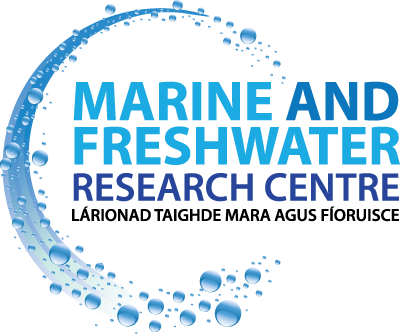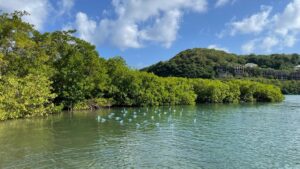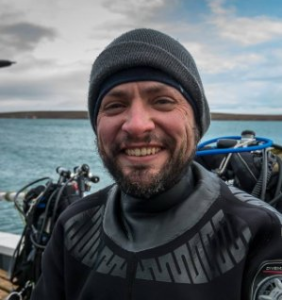The introduction of sea moss farming into Grenada, and in general on the east Caribbean region, has offered alternative livelihoods for coastal communities, addressing issues of poverty and alleviating over exploitation of reef resources. Information regarding growth rate of the cultivated species in Grenada is non-existent. The data recorded from other Caribbean islands indicates that sea moss production is low when compared to sites of commercial cultivation in other regions. Even if sea moss cultivation could be potentially very productive, the long-term success of the aquaculture production depends, at least, on the frequency and intensity of the abiotic and biotic disturbances affecting the plots, the species being cultivated, and management strategies.
In order to contribute with the successful cultivation of the crop, it is of uttermost importance to unequivocally identify the species currently farmed in Grenada and Carriacou, their growth rate under natural conditions, and the evaluation of the biotic and abiotic factors affecting their yield. Of those factors, describing the epiphytic species and assemblages associated with the cultivated sea moss is a priority. This project aims to cover those data gaps, carrying out a detailed identification of the seamoss species cultivated in Grenada, estimating the growth rate of seamoss under different biotic and abiotic conditions, and describing the biodiversity and the faunal assemblages associated with seamoss farm in the vicinity of seagrass and mangrove ecosystems.
The project is collaboration between ATU, the MFRC and St George’s University in Grenada. It is funded via a Masters Degree Scholarship awarded to Ms. Shannelle Wilkes by the Department of Foreign Affairs through Ireland’s Development Cooperation Programme ‘Irish Aid’ and administered and managed by the Marine Institute under the Our Shared Ocean Programme. The Supervisors are Dr. Jose Maria Fariñas-Franco (ATU) and Dr. Paula Spiniello (St George’s University).




